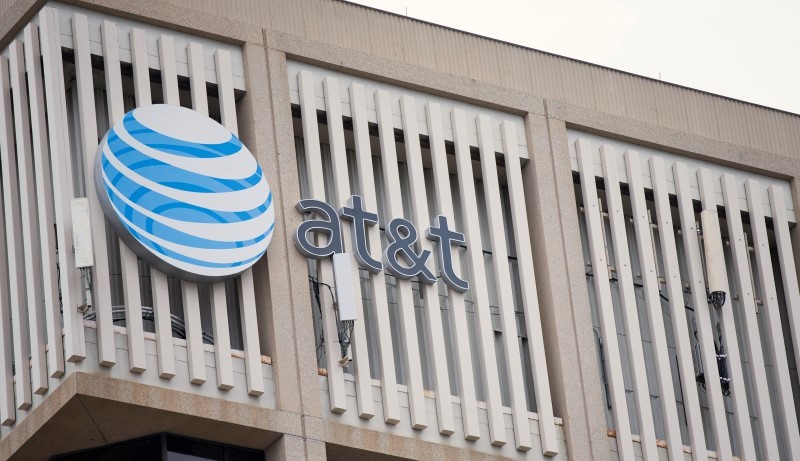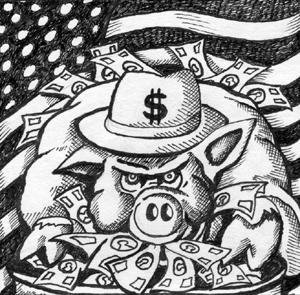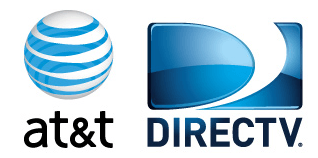
Marco Rubio drinks AT&T’s Kool Aid while also spending their money.
Eight Republican senators, including presidential candidate Marco Rubio, are so upset about communities building their own broadband networks, they’ve signed a letter demanding the Federal Communications Commission stop making life easier for the would-be competitors.
Rubio joined Sens. Deb Fischer, Ron Johnson, John Cornyn, Pat Roberts, John Barrasso, Michael Enzi, and Tim Scott in protesting the Commission’s interference in “overriding [Tennessee and North Carolina’s] sovereign authority to regulate their own municipalities.”
The senators are concerned about an FCC decision to override state laws in the two states that make it nearly impossible to launch a public broadband network. The laws were widely criticized as being written and lobbied for by incumbent telecom operators that wanted to avoid competition.
The eight adopted the phrase “government-owned networks,” popular with telecom-funded critics of community broadband, to describe local broadband networks owned and operated in the public interest, mostly offering service in areas bypassed or underserved by incumbent phone and cable companies.
The letter complains “agency officials have begun engaging in outreach to persuade communities to deploy municipal broadband networks.”
The senators were particularly upset about remarks from one agency official who stated, “Where you’ve got a community infrastructure or a rural electric company, a rural electric co-op, states shouldn’t be telling local communities what they can and cannot do.”
The eight believe private broadband providers should be given due deference over other competitors but also demanded the FCC stop “choosing winners and losers in the competitive broadband marketplace.”

EPB’s biggest problem is that they are not AT&T. The fiber to the home municipal utility outperforms both Comcast and AT&T and charges dramatically lower pricing for high speed service.
“Typical hypocrisy from those in the back pocket of AT&T,” responds Tim Weller, an advocate for expanding EPB’s municipal fiber network to other communities adjacent to Chattanooga, Tenn. “By telling the FCC to stop allowing cheaper, more reliable, and faster service from municipal utilities like EPB, they have no issue picking AT&T and Comcast as winners. Rubio couldn’t be closer to AT&T if he located his campaign headquarters in their corporate office in Dallas.”
Few candidates have closer ties to corporate telecom interests than Marco Rubio. AT&T lobbyist Scott Weaver, who works as the public policy co-chair of high-powered DC law firm Wiley Rein, is a close Rubio associate. Weaver, also assisting in litigation against the FCC to curb municipal broadband, is one of three lobbyist money-bundlers working on behalf of the Rubio campaign. He has raised at least $33,000 so far for the Florida senator.
Rubio has lived off AT&T’s generosity since his days in the Florida legislature, spending hundreds of thousands of dollars, including $22,000 in personal expenses, on a state Republican Party American Express card that was paid each month with funds donated by AT&T and other special interests.
The International Business Times reported Rubio’s long history courting companies like AT&T to give heavily to murky Republican-controlled fundraising groups that bypassed Florida’s ban on gifts from lobbyists.
In 2003, as a member of the Florida state House, Rubio created a special fundraising committee, called Floridians for Conservative Leadership, that could accept unlimited contributions. In the span of a year, the committee raised $228,000, with large donations from lobbyists, telecom giant AT&T, health plan manager WellCare and the state’s sugar conglomerates, Florida Crystals and U.S. Sugar. Not all of the contributors were disclosed, and some are listed simply as gold or silver memberships.
By mid-2004, the group had spent $193,000. More than a third of the committee’s money was spent on meals and travel. Some of those expenditures were made as reimbursements to Rubio and his wife, Jeanette. Other payments appear to be multiple items lumped together as single expenditures — an uncommon arrangement — like a $3,476 expense listed under “Citibank Mastercard” that includes hotel, airfare, meals and gas. Another $71,000 was spent on staff and consultants.
While Rubio was in the legislature in the February 2004, he created a federal 527 organization with a similar name, called Floridians for Conservative Leadership in Government. Rubio was listed as the group’s president, with his wife as vice president. The committee raised $386,000 by the end of 2004, with donations from Hewlett-Packard, Dosal Tobacco Corporation and private prison company GEO Group, according to filings with the Internal Revenue Service.
The federal group spent $316,000 by the end of 2005. The bulk of its spending was on consulting, but the committee also paid Rubio’s relatives roughly $14,000 for items wrongly described as “courier fees,” the Tampa Bay Times reported.
As Marco’s money controversies emerged, some members of his staff decided to move to the private sector, including Rubio’s former chief of staff, Cesar Conda, who now works as a professional lobbyist for AT&T. As a U.S. senator, Rubio continues to cash AT&T’s campaign contribution checks.
“This letter is nothing more than naked corporate protectionism from senators that get donations from the same telecom companies that are threatened by a challenge to their monopolies,” Weller added.
The senators also demanded Wheeler answer questions about how much money the FCC has given to municipal providers, whether the presence of municipal providers would lead to cuts in funding for private phone companies from the Universal Service Fund/Connect America Fund, and what exactly the FCC plans to advocate or regulate with respect to public broadband in 2016.


 Subscribe
Subscribe
 In the darkness of night, Congress on Tuesday handed some of America’s largest telecom companies
In the darkness of night, Congress on Tuesday handed some of America’s largest telecom companies  Despite cost savings
Despite cost savings  AT&T’s Voice 1000 plan is increasing to $30 a month and the Voice 250 plan will rise by $2, to $27 per month;
AT&T’s Voice 1000 plan is increasing to $30 a month and the Voice 250 plan will rise by $2, to $27 per month; When a CEO tells customers they should
When a CEO tells customers they should 
 The volume of complaints has been so great, CutCableToday notified the FCC it would consider its FOIA request adequately fulfilled after nearly 2,000 complaints were initially made available in response. The group put those 1,929 complaints together into four huge PDF files you can download and review yourself:
The volume of complaints has been so great, CutCableToday notified the FCC it would consider its FOIA request adequately fulfilled after nearly 2,000 complaints were initially made available in response. The group put those 1,929 complaints together into four huge PDF files you can download and review yourself: